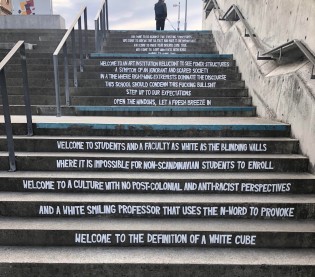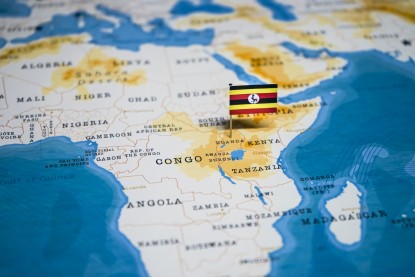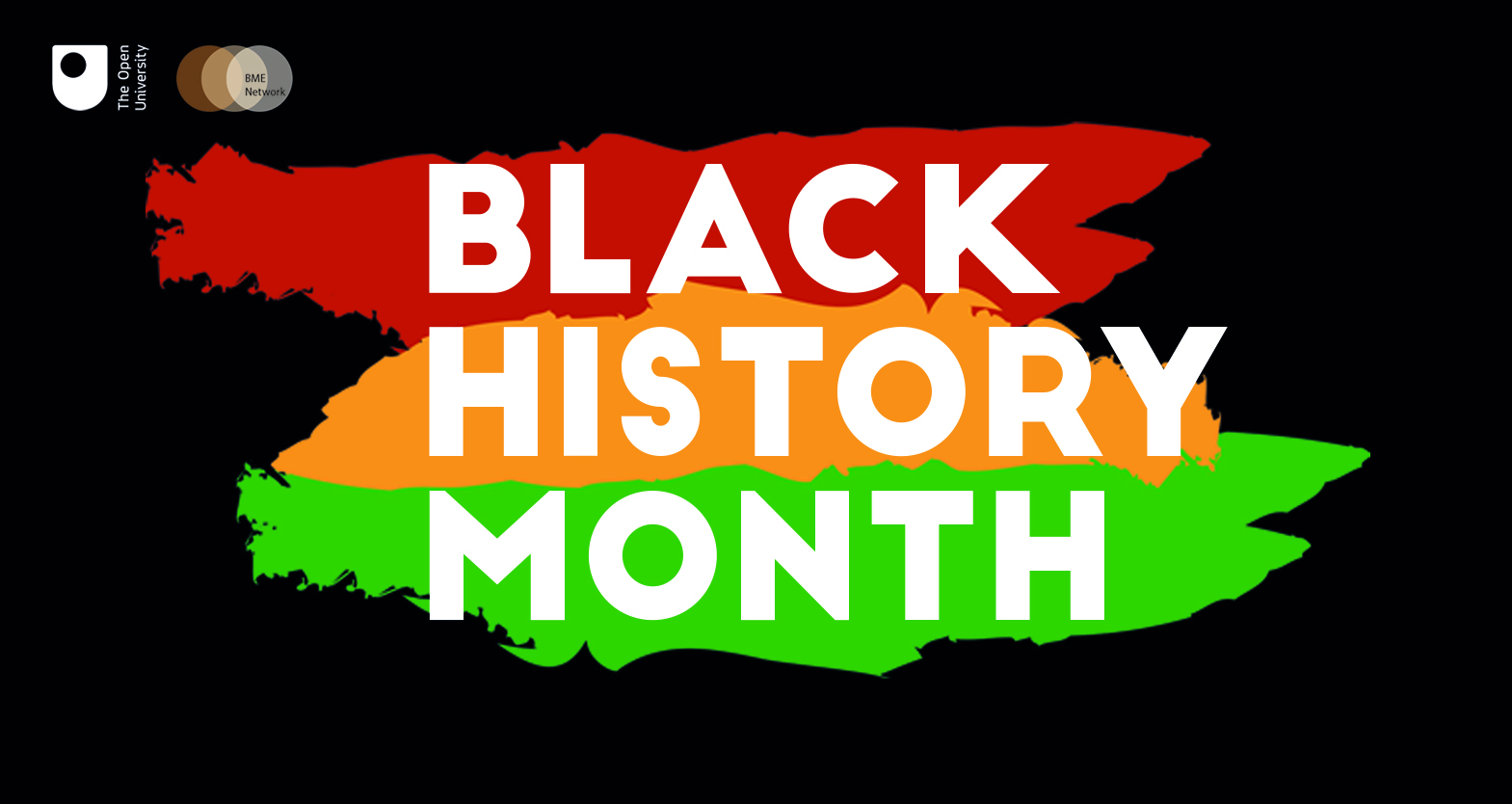Check out the presentations in the related articles below
-
Black Majority Churches (BMCs) and the transformation of British Christianity
Watch now to access more details of Black Majority Churches (BMCs) and the transformation of British ChristianityJohn Maiden explores Black and Minority Ethnic expressions of the Christian tradition while Sheena Daley gives a personal reflection on Black Christian Churches...

-
Reflecting on Race at The Open University
Watch now to access more details of Reflecting on Race at The Open UniversityThis collection of videos from a conference during Black History Month reflects on race and ethnicity at The Open University.

-
Decolonising computing?
Watch now to access more details of Decolonising computing?What might it mean to decolonise computing? Mustafa Ali explores in this article.

-
Insights into Policing and Racism in the UK – a collection
Watch now to access more details of Insights into Policing and Racism in the UK – a collectionThis collection provides overview and historical context of (some of) the differences and similarities in policing in the USA and UK, particularly those related to race and systemic and institutional racism, and what’s being done about racism in the police.

-
Why Design Education needs Black and Women of Colour Feminist Thinking
Watch now to access more details of Why Design Education needs Black and Women of Colour Feminist ThinkingTanveer Ahmed reflects on how Black and women of colour feminist theories have helped her better understand how patriarchal and Eurocentric narratives continue to underpin and shape fashion design and explores how to decolonise design practices.

-
Developing Stamina for Decolonising Higher Education
Watch now to access more details of Developing Stamina for Decolonising Higher EducationWhat are the challenges, possibilities and complexities of decolonising Higher Education? Sharon Stein explores how to hold space for the difficulties of decolonisation in this article and video.

-
Little white lies: Whiteness, reflexivity, race and criminology
Watch now to access more details of Little white lies: Whiteness, reflexivity, race and criminologyWhy is it important for White people to talk about Whiteness? Rod Earle, a senior lecturer in youth justice, explores this in relation to racism and criminology…

-
Crafting a new international partnership for racial equity in Higher Education
Watch now to access more details of Crafting a new international partnership for racial equity in Higher EducationAs part of Black History Month 2020, Jessica Aguti of Makerere University and Charles Mbalyohere of The Open University were invited to talk about an exciting partnership between their two institutions.

-
'Keeping it Real': The Experiences of Black Youth beyond Criminal (In)Justice Statistics
Watch now to access more details of 'Keeping it Real': The Experiences of Black Youth beyond Criminal (In)Justice StatisticsDr Anthony Gunter draws on his ethnographic research and experience as a community and youth work practitioner to give us the real experiences of Black young people and the justice system.

-
Afterword to Representing Religions: Race, Rationality, Colonialism and Anthropology
Watch now to access more details of Afterword to Representing Religions: Race, Rationality, Colonialism and AnthropologyPaul-François Tremlett explains how Western representations of the Cargo Cults was in the contexts of colonialism, capitalism and racism in this video.

-
Subjugation and slavery: fake news in the nineteenth-century press
Watch now to access more details of Subjugation and slavery: fake news in the nineteenth-century pressFake news is not a new phenomenon. Pauline Brown explores this concept in relation to the portrayal of black people as the inferior race in nineteenth-century newspapers.

-
The ‘boundarylessness’ of African-Caribbean religions
Watch now to access more details of The ‘boundarylessness’ of African-Caribbean religionsHow have Santeria, Vodou or Rastafari become global religions? Hilde Capparella, a PhD research student at The Open University, explores African-Caribbean traditions and religions in this article.

-
Decolonising the Curriculum through the History of Mathematics
Watch now to access more details of Decolonising the Curriculum through the History of MathematicsAs part of Black History Month, June Barrow-Green and Brigitte Stenhouse gave a presentation in which they explored how historical sources can be used to decolonise the mathematics curriculum.

-
Decolonising the idea of culture in management studies
Watch now to access more details of Decolonising the idea of culture in management studiesAs part of Black History Month, Charles Barthold explores the connections between the management curriculum and coloniality.


Rate and Review
Rate this video
Review this video
Log into OpenLearn to leave reviews and join in the conversation.
Video reviews
Having much about the past history of the black people, especially the slavery part, I feel ashamed of the UKs part in it. Why should any people be subjected to fear by others who occupy positions ofd power? We are coming to the end of covic hopefully, and the thing that seems to stand out to me is why are the ethnic people more suseptable to the virus than us whites, surely not because of their colour, but if not then why?
George Clarke - 15 February 2021 3:23pm
Why are coloured people suseptable to the coruna virus than whites? This is one thing I have heard reporters talk about on TV, but no-one seems to come up with the answer.
Daniel Linehan - 4 February 2021 7:37pm
Why are most of these commentators white folks? Does the Open University believe that people of colour can't speak for themselves? Are they worried that most people, of every ethnicity, don't want to be a special case, or made to feel like they don't belong? That probably doesn't fit the administration's narrative. I don't feel comfortable with the idea of white academics telling me about the black British experience, much as I don't like the idea that Black British history is distinct from British history. Why can't we have an inclusive history, rather than this weird historical apartheid?
Is anyone else sick of the Open University's weird application of arbitrary group membership to everything?
Sas Amoah - 10 February 2021 7:38am
Hi Daniel,
Thanks for taking the time to comment on this page along with the numerous other articles you’ve shared your viewpoint on, it’s great to see that much of the content on this hub has resonated with you.
However I find it curious that you've ignored the lectures given by the Black and Minority Ethnic people above and focused your attention primarily on the white contributors.
I’m sure you've already taken the time to watch all the lectures before you posted your comment but I think you'll find on a second viewing that most of the white academics aren't telling us about the Black British experience, rather they're acknowledging that there are structures that exist within and outside our country that disproportionately disadvantage people from Black and Minority Ethnic backgrounds.
On the rare example where an academic shared their research on the Black British experience, in this case Black majority churches one of the Black members of staff was inspired to contribute a personal reflection to accompany the lecture she watched, so rather than reinforcing any divisions the Black History Month calendar of events gave colleagues an opportunity to discuss topics they might not have had a chance to previously.
Most of the presentations aren't suggesting that 'Black History' is separate by nature but rather by design and by acknowledging precisely what has been left out in the current canon we can take steps towards creating a more inclusive curriculum in future learning design.
Nevertheless you’ll be pleased to hear the events where evaluated by all attendees regardless of background and the response was overwhelmingly positive so if your comment stemmed from a belief that these sessions fuelled any sense of division, rest assured that wasn't the case rather the opposite is true.... speaking as one of the people of colour whose opinion you were eager to hear.
Regards,